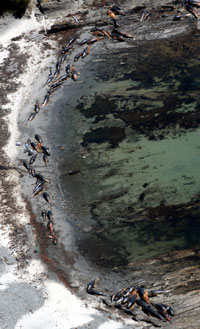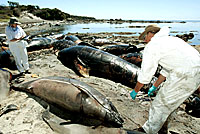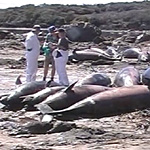|
Dr Gales says knowledge about pilot whales is limited and she hopes DNA and pollutant load tests will reveal more about the species.
"At least now it provides a little bit of a window
to try to understand more about the lives of these
animals," she said.
Scientists also hope to establish whether there is any
connection with a mass stranding of pilot whales in
New Zealand last week.
|


